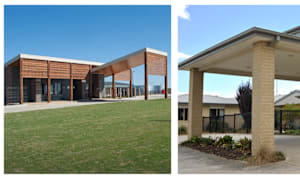The final point raised by Commissioner Lynelle Briggs at the Newcastle community forum this week was an issue that has been an underlying theme throughout the Royal Commission: that there is no ‘joy’ for older people in residential care.
This is not fair, according to the Commissioner.
“No one should be prepared to accept less. This is just crazy stuff,” she said.
What is joy? The Oxford Dictionary defines it as a feeling of great pleasure or happiness.
This is not easy to provide to older people, particularly those entering residential care. They know that this is the final place they will live before they pass away – and their families know it too.
So, what will give joy to our older Australians?
Again, as my colleague Jill Donaldson, who is an aged care physiotherapist, would say, this comes down to ‘touch’ – and time spent to interact with others.
Sitting in front of a television will not cut it. But having a carer or volunteer come in to sit and talk with you and provide ‘touch’ will.
This doesn’t always happen. In 2017, then-Aged Care Minister Ken Wyatt estimated up to 40% of aged care residents receive no visitors.
The question is then: is the Government prepared to pay people to spend time with older Australians?
The answer is yes – because this will improve mental health. Nurses provide clinical care to address physical health, but this will only go so far.
Last week, the Federal Treasurer Josh Frydenberg announced retirees aged 65 to 75 may need to seriously consider retraining for new jobs because of the economic burden of our ageing population.
Several witnesses this year at both the community forums and the formal hearings have already suggested having young people volunteer in aged care homes or counselling be provided to new residents.
Why not take this a step further and retrain older people to provide companionship and support?
Many home care providers already employ staff in their 60’s and 70’s either as support workers or volunteers.
They are present in every community, available to work nights and weekends and most importantly, are also on the ageing journey themselves.
They also won’t need the three years of training that a nurse requires to provide care.
As Commissioner Briggs said: “There is insufficient staff to the growth in the demand for aged care services. We need a sizeable growth in the workforce in the field. People are what runs this system and we have got to find a way to look at increasing supply.”
The Royal Commission wants solutions to this issue – and the Commissioner says they have had few suggestions so far.
“I give that challenge to you what would really work to help elderly people to enjoy the last 10 to 15 years of their life – not just people in residential care but at home,” she said to the audience.
“You must have ideas around what you think will work.”
Do you have an idea to provide joy you think should be shared with the Commission?









